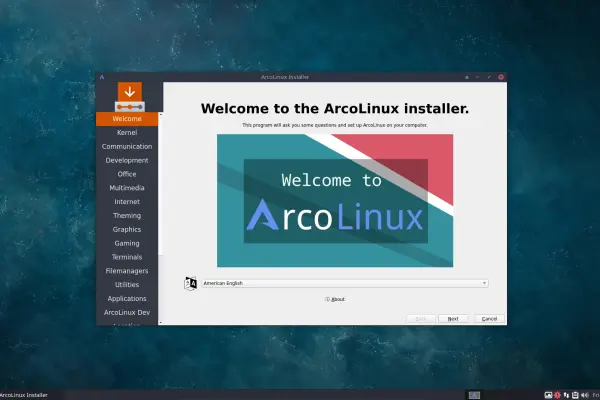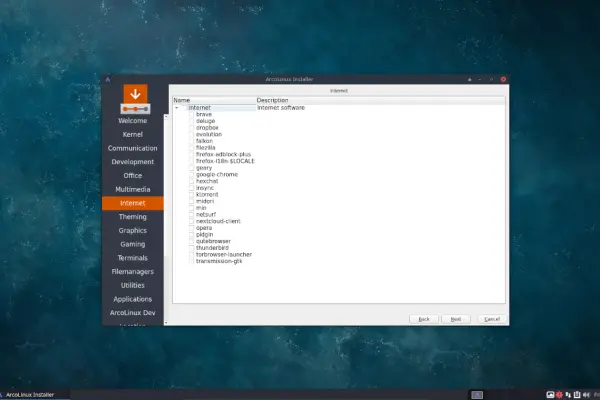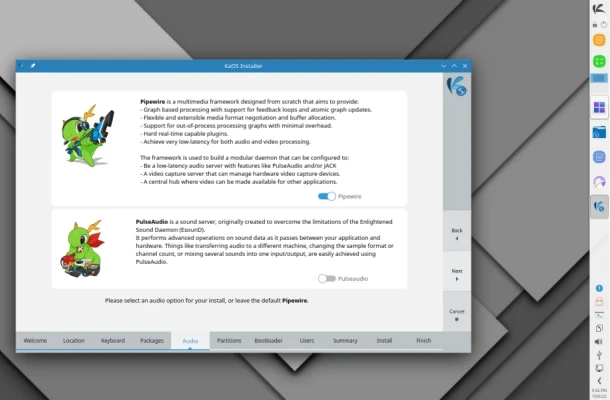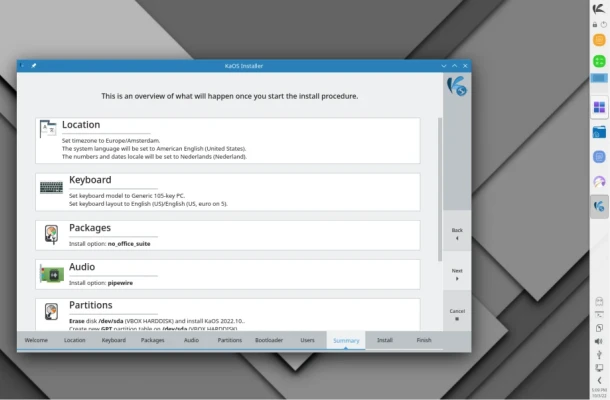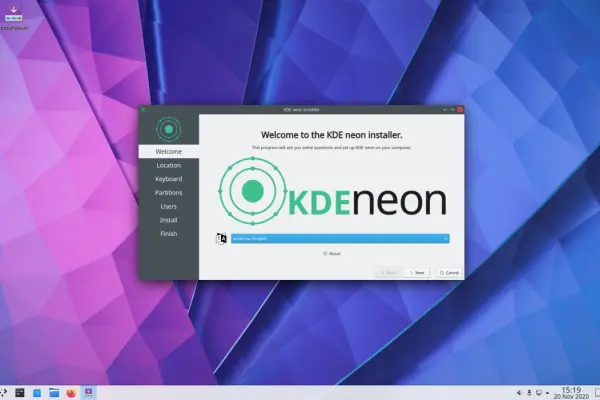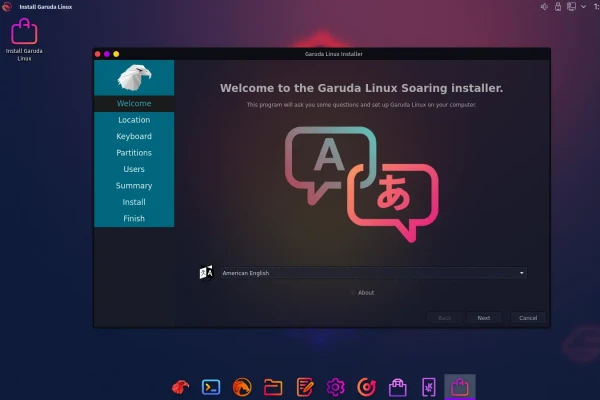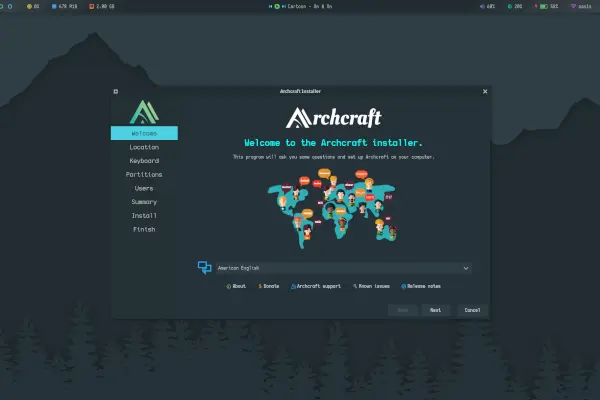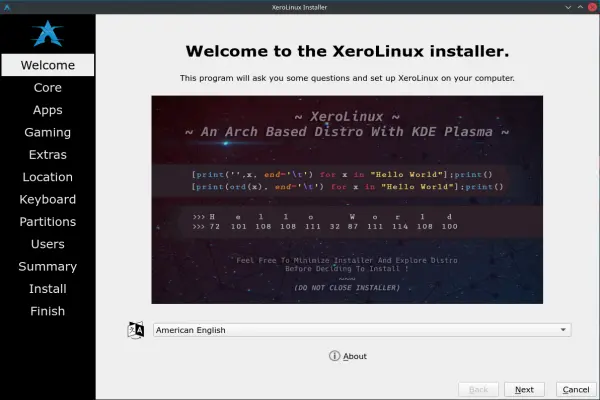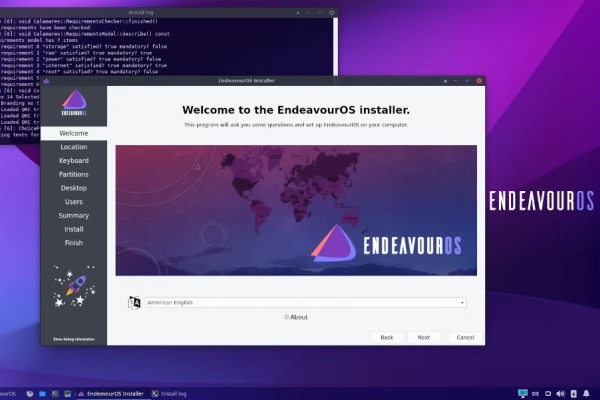First of 2025, with a bunch of internal improvements in the Python bindings, an undo-hook for pages (which rolls back changes that the keyboard and timezone pages may have made to the system) and improvements to the partition module.
 What is Calamares
What is Calamares
Calamares is an installer framework. By design it is very customizable, in order to satisfy a wide variety of needs and use cases. Calamares aims to be easy, usable & beautiful while remaining independent of any particular Linux distribution.
 Knowledge Base
Knowledge Base
The Guide linked above has documentation for end-users, the wiki is mostly for distro developers. The developer’s guide contains information on building Calamares, on its design, and localization.
 Calamares look
Calamares look
Since Calamares is designed to be customized, themed and branded by individual distributions, it can look very different when used by specific distributions. A separate extensions package contains examples and custom modules.
Latest News:
Calamares 3.3.14 released
Calamares 3.3.13 released
A last-minute (of 2024) release, which brings a bunch of improvements from Lubuntu and elsewhere, mostly for the partition module.
Calamares 3.3.12 released
Another quick release, primarily to resolve build issues with the calamares-extensions repository.
